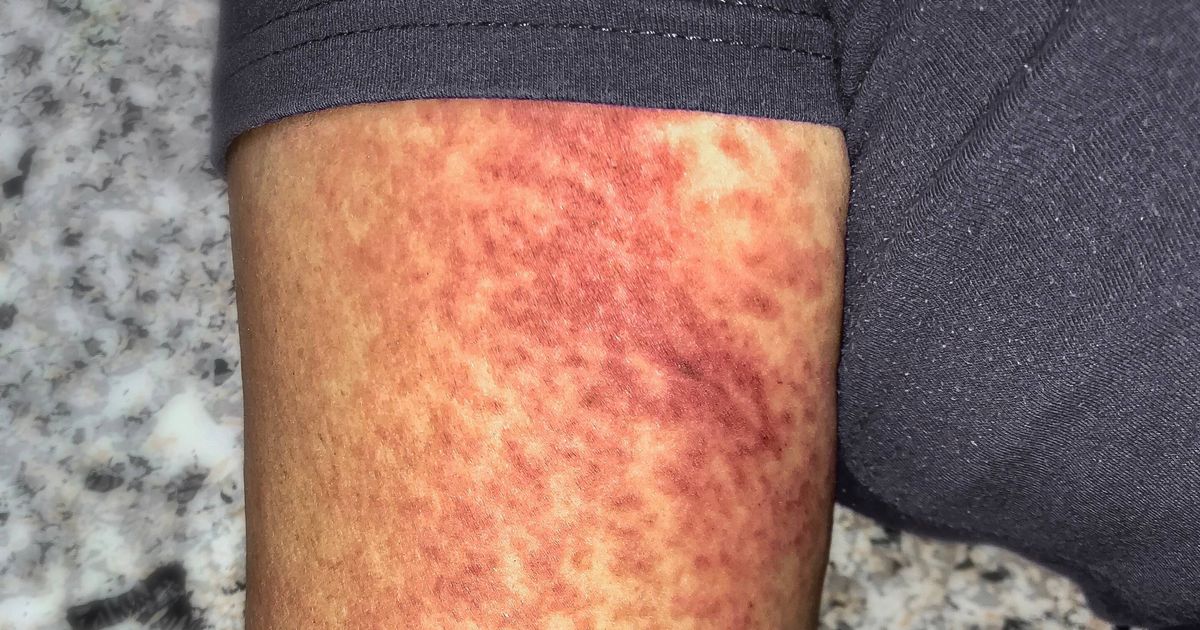There has been a 170 per cent surge in cases in England recorded so far in 2025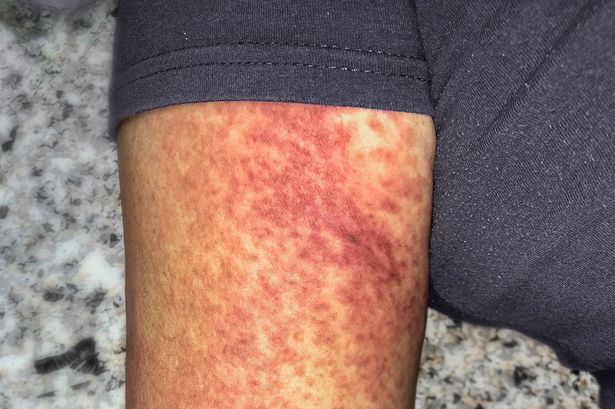 Rash caused by chikungunya virus(Image: Zay Nyi Nyi via Getty Images)
Rash caused by chikungunya virus(Image: Zay Nyi Nyi via Getty Images)
Health experts have issued a warning about a “nasty” disease that can cause years of pain, as cases are seeing a “worrying” increase, with the majority of Brits infected having contracted it in one of three countries.
The chikungunya virus, which is transmitted through mosquito bites, can lead to fever and joint pain. It has been spreading rapidly in southern China, with UK health authorities also noting a significant rise in cases compared to last year.
Chikungunya is an infection related to overseas travel, carried by mosquitoes, with symptoms such as joint pain, swelling, muscle pain, nausea, a rash and fatigue. These symptoms can often be misdiagnosed due to their similarity to Dengue and the Zika virus.
Recent reports suggest nearly 10,000 cases have been recorded in China, with the cities of Foshan and Guangzhou being severely affected.
It is thought that heavy monsoon rains this year have led to flooding, creating pools of muddy and stagnant water – ideal conditions for mosquito breeding and the spread of the disease.
Never miss a story with the MEN’s daily Catch Up newsletter – get it in your inbox by signing up here
Most people infected with chikungunya recover fully within one to two weeks, but joint pain can linger for months or even years. Up to 12 per cent of patients continue to experience discomfort three years after infection, reports the Mirror.
Serious complications are rare, but in exceptional cases, the disease can be fatal. This is particularly true for the very young, older individuals and those with other underlying illnesses.
In England, a total of 73 cases were recorded between January and June this year, according to figures from the UK Health Security Agency (UKHSA).
The 170 per cent increase dwarfs the 27 cases logged during the same timeframe in 2024.
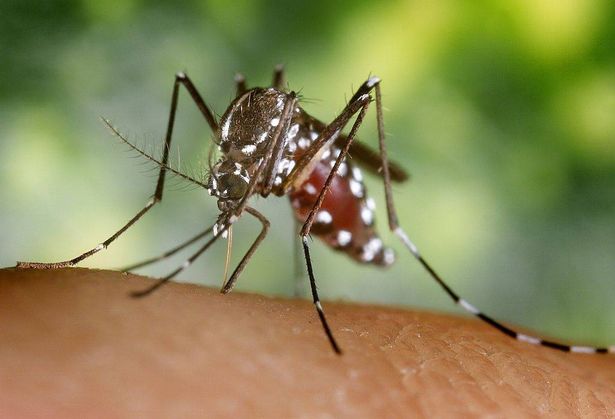 The chikungunya virus is spread by mosquito bites(Image: Getty Images)
The chikungunya virus is spread by mosquito bites(Image: Getty Images)
Climate change could trigger a surge in chikungunya cases in future years, experts have cautioned. This is due to expectations of more extreme weather patterns, bringing heavier rainfall, increased flooding and consequently creating ideal breeding conditions for mosquitoes.
However, the climate – thought to be driving the spike in cases across China – is actually one factor preventing chikungunya from spreading extensively within the UK.
“There are only two species of mosquito that transmit the disease and they are not established in the UK at present,” the UKHSA explains.
“This is because our climate is generally not suitable for their survival and breeding. Therefore, there is currently no risk of onward transmission of chikungunya in the UK.”
Despite China’s outbreak, the UKHSA revealed that amongst the 73 cases, most patients had travelled to Sri Lanka, India and Mauritius “linked with ongoing local outbreaks in countries in the Indian Ocean region”. All cases were recorded in England, with the majority concentrated in London.
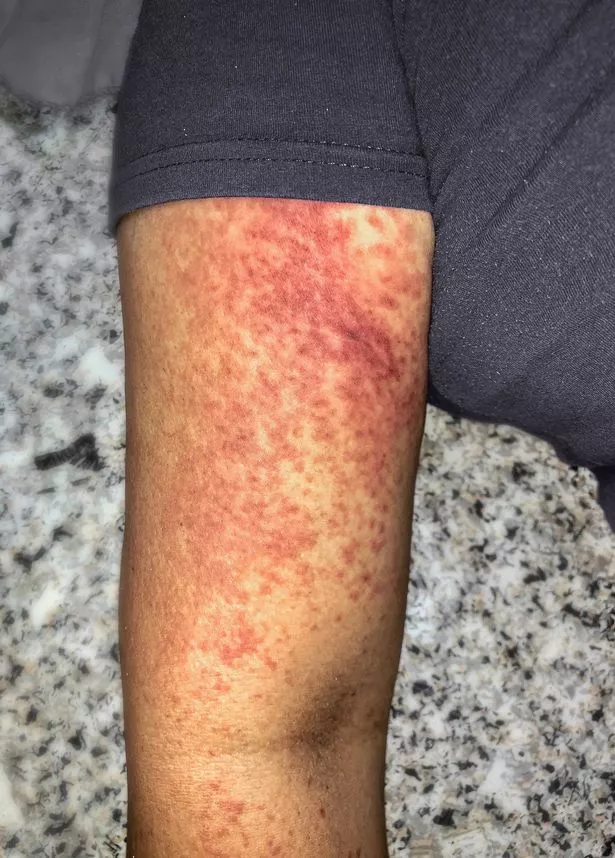 Chikungunya rash on the arm of Asian female patient. Widespread maculopapular skin lesions(Image: Zay Nyi Nyi via Getty Images)
Chikungunya rash on the arm of Asian female patient. Widespread maculopapular skin lesions(Image: Zay Nyi Nyi via Getty Images)
Dr Philip Veal, Consultant in Public Health at UKHSA, described chikungunya as a “nasty disease” and warned that “we’re seeing a worrying increase in cases among travellers returning to the UK”.
He said: “While this mosquito-borne infection is rarely fatal, it can cause severe joint and muscle pain, headaches, sensitivity to light and skin rashes. Thankfully symptoms usually improve within a few weeks, but joint pain may last for months or longer.”
Dr Veal encouraged travellers to protect themselves from mosquito bites when going overseas, especially in affected regions. In the United States, where 46 travel-related cases have been documented in 2025, the Centres for Disease Control and Prevention (CDC) has issued a Level 2 travel advisory for Guangdong Province in China.
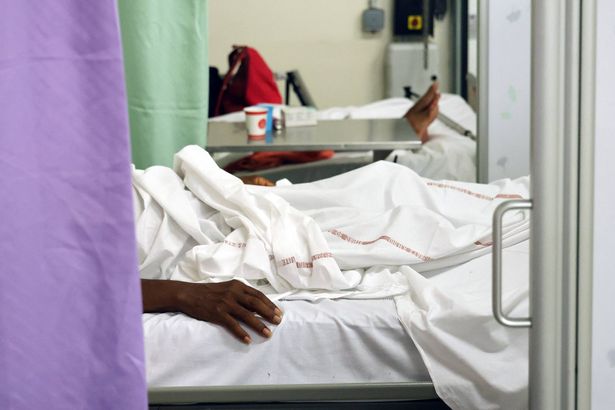 Patients with chikungunya being treated at the Hospital Center West Reunion Chor in Saint Paul, France’s overseas Indian ocean island of La Reunion, on April 10, 2025(Image: RICHARD BOUHET, AFP via Getty Images)
Patients with chikungunya being treated at the Hospital Center West Reunion Chor in Saint Paul, France’s overseas Indian ocean island of La Reunion, on April 10, 2025(Image: RICHARD BOUHET, AFP via Getty Images)
Two chikungunya jabs have recently received approval for use in the UK following recommendations from the Joint Committee on Vaccination and Immunisation (JCVI). ‘IXCHIQ’ can be given to people aged 18 to 59 years old, whilst ‘vimkunya’ is suitable for individuals aged 12 and above.
The jabs can be purchased from travel clinics after evaluation by a medical professional.
Dr Veal said: “It is essential to take precautions against mosquito bites when travelling. Simple steps, such as using insect repellent, covering up your skin and sleeping under insecticide-treated bed nets can greatly reduce the risk. Before you travel, check the Travel Health Pro Website for the latest advice on your destination. A chikungunya vaccine may also be considered for those travelling to higher-risk regions.”

